
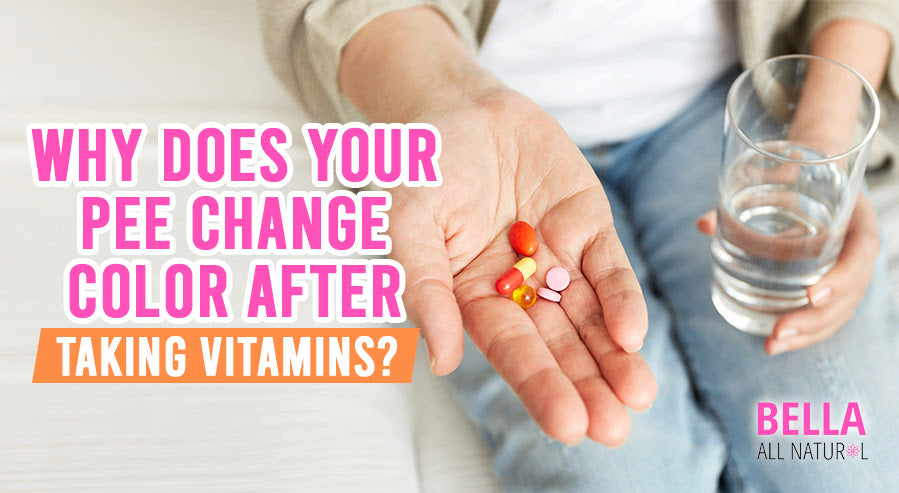
Ever noticed your pee turning a shade of neon? Chances are it's those vitamins you've been popping. No stress, though; it's pretty common and not usually a sign that anything's off track. Our bodies are pros at changing pee color, especially after we down certain vitamins, to flush out the extras we don't need.
That psychedelic pee hue? Mostly thanks to water-soluble vitamins like the Bs and C. Our system's pretty slick at siphoning off these overloads through our pee. If you're seeing a rainbow in the bowl after kicking off a new vitamin regime, it's just your body's way of keeping things in check by ditching what it can't use. And it's all good for you.
So, there is no need to hit the panic button or throw your vitamins away. Let's talk about why this happens and what it tells us about our bodies' smart vitamin management system!
Water-Soluble and Fat-Soluble Vitamins
Ever noticed your pee changing color after you popped some vitamins? That's your body talking to you about water-soluble and fat-soluble vitamins. Let's get to the bottom.
So, vitamins A, D, E, and K like to stick around. These fat-soluble buddies can relax in your fat tissues and liver for a pretty long time - think months. That's useful because it means you don't need to top them up as commonly. But here's the catch: too much might start causing trouble, health-wise.
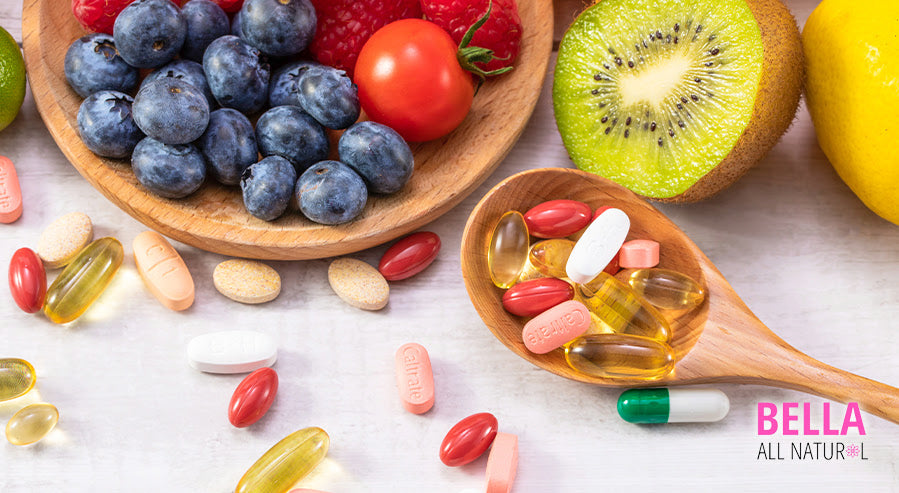
Then there's the other crew - Vitamin C and all the B's, which are the water-soluble types. They're like the guests who love a quick visit but never sit around. Since they dissolve in water, your body sends them packing via your pee pretty fast. That means you have to invite them back in regularly because your body doesn't have a guest room to store them.
So, if your urine is rocking a neon sign, it's probably just showing you that the water solubles are on their way out. And usually, that's cool. But it's always a good idea to tune into your body's signals - it's trying to tell you something.
Why Is My Urine Bright Yellow?
If you can have too much of a good thing, especially when it comes to vitamins? Let's talk about how our bodies deal with those extra nutrients and the thin line between just enough and too much.
Our bodies have a smart way of handling vitamins - they take what they need and ditch the rest. This is especially the case with water-soluble vitamins, like those B vitamins that improve your energy and vitamin C that keeps your skin and immune system in top shape. If we go overboard, our bodies basically flush the excess out, commonly turning our pee into a light show in the process.
But here's the kicker: loading up on more vitamins than your body knows what to do with doesn't level up your health. In fact, it's pretty much tossing your money down the drain, or worse, it could backfire. To give you an example, overloading on vitamin C might leave you with a sour stomach and too much vitamin A. Not a great plan.
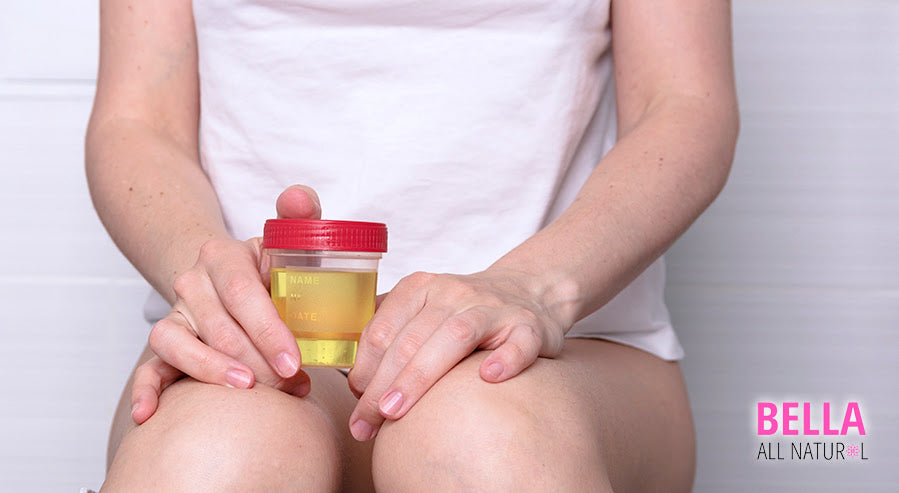
Our bodies are pretty clear communicators, giving us signs, like those neon urine colors, when we're overdoing it.
The truth is that a balanced diet usually has our vitamin needs covered, leaving those high-powered supplements collecting dust on the shelf. It's wise to chat with a healthcare pro about your diet to see if you really need extra improvement or if you're already hitting the mark. And keep an ear out for what your body's telling you, like if your pee starts looking like a highlighter - it's probably time to ease up on the vitamins.
So, remember, more isn't always better. Listening to your body and striking the right balance is important to keeping it happy and healthy.
The Part of Vitamin C in Changing Urine Color
Did you know that chugging too much vitamin C can turn your pee orange? That happens because our bodies have their limits on how much vitamin C they can soak up. Whatever your body doesn't need gets the boot through your urine, which is why it can start looking more like a sunset than usual.
Seeing orange when you go can be your body's quirky way of saying, "maybe ease up on the vitamin C there." Don't worry; it's not usually something to panic about, but it's definitely a nudge to think about how much vitamin C you're popping.
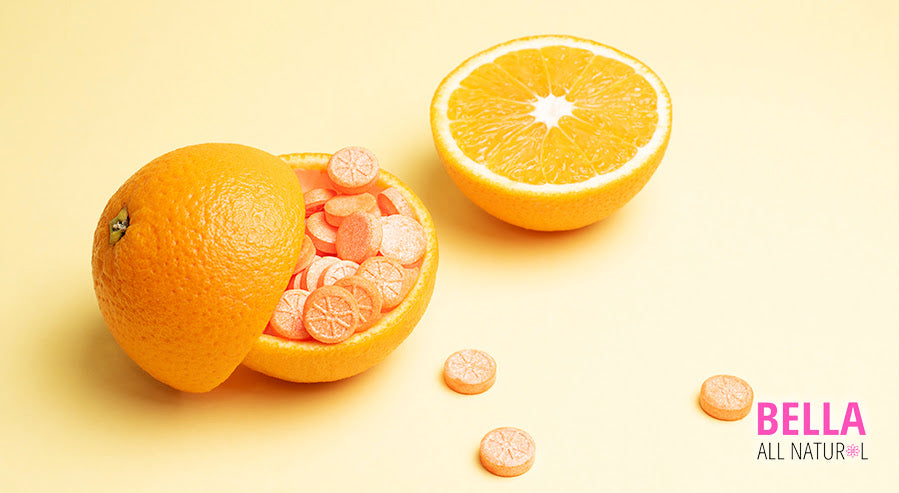
Our bodies are pretty smart - they toss out extra vitamins we don't need through our pee. It's kind of their way of keeping things in check. If you're seeing a color palette in the toilet bowl, it might be worth having a chat with your doctor. They can help you figure out the right amount of vitamin C, which makes sure you're not overdoing it. It's in finding that sweet spot for your supplement intake so you're giving your body exactly what it needs.
Safety and Health Implications
Ever noticed how your pee can turn a funky color after you've popped some vitamins? That's because different vitamins can actually improve your urine color. Take vitamin B2, or riboflavin, as the science people call it; it can make your pee look bright yellow. And if you're big on carrots or sweet potatoes, all that carotene can leave you with orange-tinted urine. I'm talking about food; some vitamins can team up with what you eat or your meds and give your pee a surprise makeover - think pink from beetroot or even blue or green in rare cases. This color shift is like a memo from your body saying it's busy flushing out any vitamin excess it doesn't need.
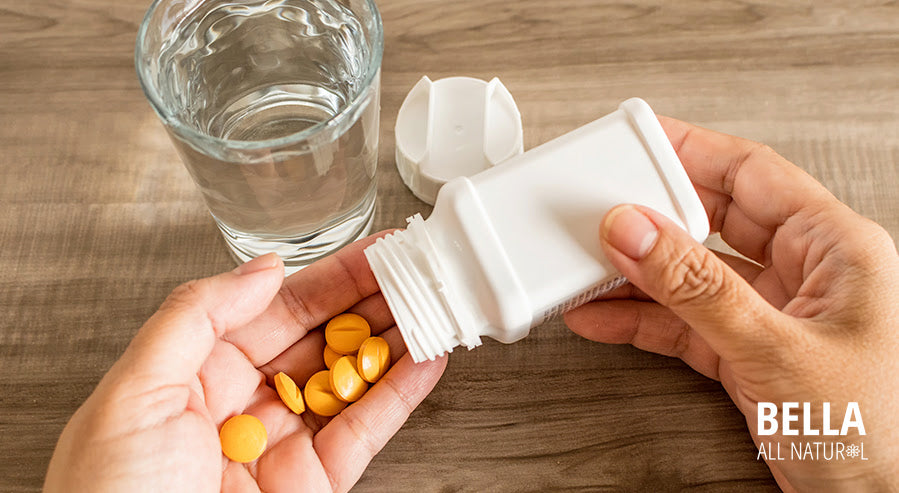
So, should you sweat it when your pee starts looking like a rainbow? Mostly, no. It's your body's way of telling you it's doing its job, getting rid of the extra bits it doesn't need. It's also a nudge to remind us not to go overboard with the vitamins. It's not about ditching vitamins very much, but about being smart with them.
The great rule is to trust a well-rounded diet to keep your vitamin intake in check. This keeps your urine color on the lighter side, which signals that your body's getting its nutrients straight from your meals, exactly how it likes it. That's the ticket to not stressing your body with a surplus of supplements it doesn't need.
What Else Affects Urine Color?
Ever notice how your pee changes color, like how it can go from light to super bright yellow after you pop a vitamin B2? Or how when you're not hitting your water target for the day, it gets darker? And, let's not forget about how certain meds for aches or infections, and even some of your favorite snacks like beetroots or asparagus, can give your pee a whole new hue, turning it orange, pink, or even light green.
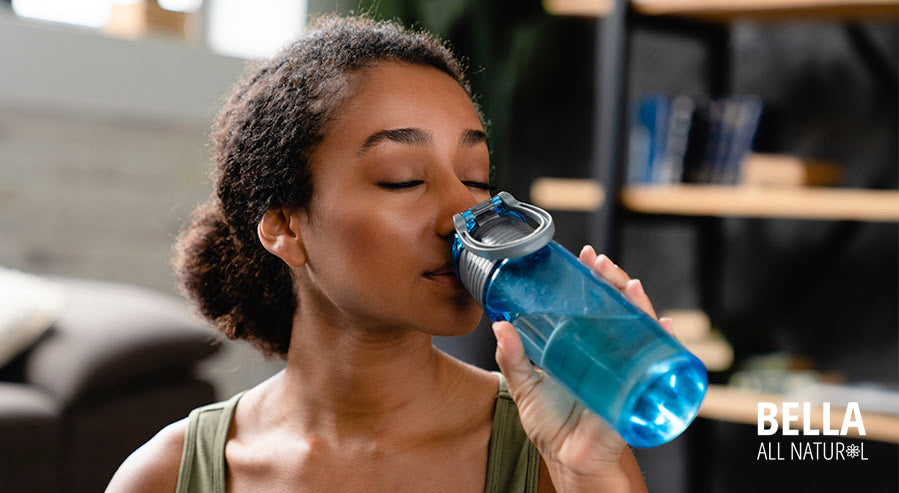
But here's a heads-up: your pee's color has many uses beyond a quirky party trick. It can actually clue you in on what's going down with your health. If you're seeing green, blue, pink, or red in the bowl, it might be your body waving a flag about your liver acting up, a urinary tract infection, or even more serious things like certain cancers. And if your pee looks more like a frothy beer or murky water, it might hint at too much protein in your diet, some kidney troubles, or that you've taken a hit somewhere.
Why does this matter? Because paying attention to what's happening in your toilet can actually tell you a lot about your health. While a lot of these color changes are probably no biggie, if things seem off and stay that way, getting on the phone with your doctor is a smart move. Making sure everything's cool on the inside is important to keeping you healthy and ready to take on the world.
When Should You Worry About Urine Color Change?
When your pee switches up its color because of the vitamins you're taking, it's usually no big deal. But sometimes, those color changes wave a red flag about something more serious going down. It's important to know when to sit up and take notice. If your pee turns a shade of highlighter yellow, orange, brown, green, or blue, and you haven't just tried new food, vitamins, or pills, that's your cue, especially if the color sticks around even after you've cut out the suspected cause.
Catching a look of red or pink when you're just expecting the usual can be startling, but it's not always a cause for alarm. That beet salad or a handful of berries might be the culprit. But, it could also be blood making an appearance, which is not something to just shrug off. This could be your body hinting at a urinary tract infection, kidney stones, or something more serious like a tumor. In these moments, it's important to get on the phone with your doctor pronto.
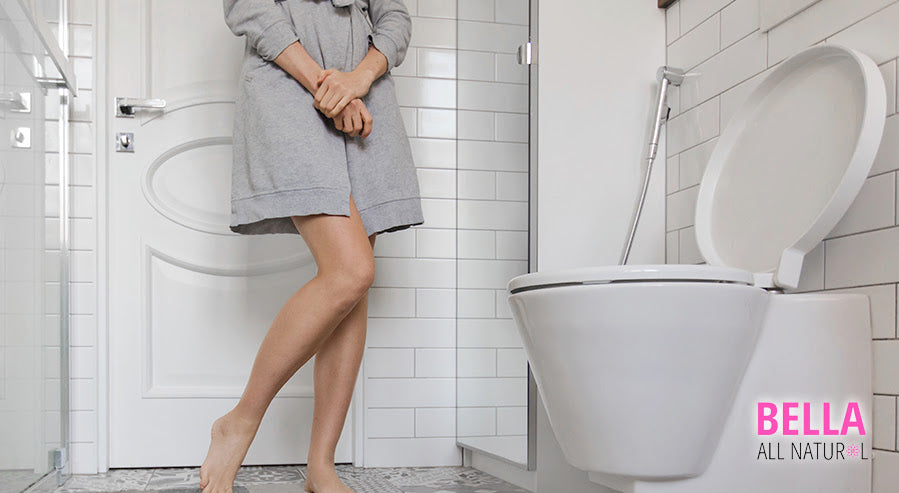
If your pee is looking cloudy, that's your cue to talk to a doctor, as it could mean an infection or kidney stones are crashing the party. Dark brown urine is another head-turner. It might basically say you need to drink more water, but it could also be flashing a warning sign about liver or kidney issues.
Sure, super clear or pale pee might seem like a win, but it could suggest you're overdoing it with the water or that your meds are messing with you. And if clear pee is all you're seeing, plus you have other weird symptoms, a doctor's visit is definitely in order.
Isn't it wild how the color of your pee can actually tell you a lot about what's happening with your health? If you spot any unexpected and persisting color changes, especially if your body is throwing other signals too, getting a check-up is a smart move. Listening to what our bodies are trying to say can be incredible in nipping any health issues in the bud.
How Long Does It Typically Last?
Ever noticed your pee changing color after popping some vitamins? That's just your kidneys in action, finishing what your body doesn't need. You might be wondering how long it'll take to see that familiar yellow shade again. Well, it's not a one-size-fits-all answer. Your body's unique way of handling nutrients and how much water you drink play big roles here. Up your water intake, and you might notice the technicolor display dialing down quicker, thanks to your body getting rid of those extra vitamins more efficiently.
Keeping yourself healthy overall, with your kidneys in good shape, also helps speed up the process of peeing normally post-vitamins. For those with great kidneys, waving goodbye to those extra vitamins happens faster than for people with kidneys that are a bit more sluggish.
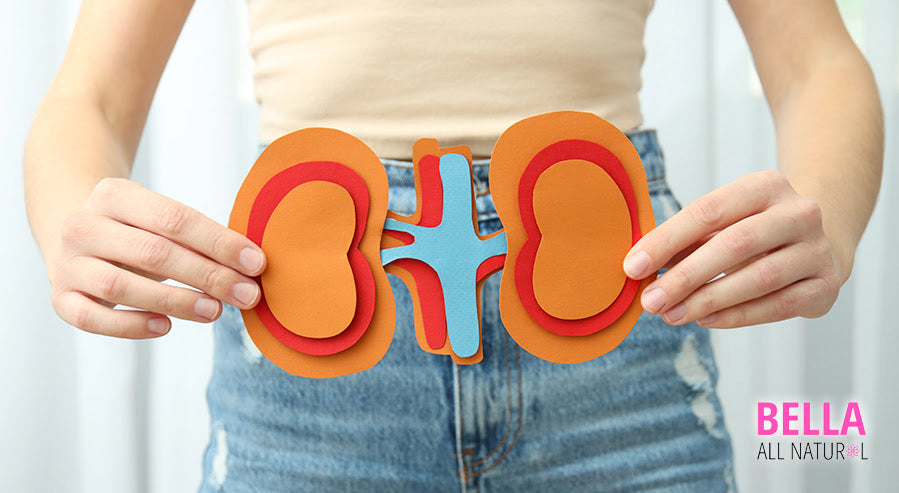
And let's not forget the type of vitamin you've taken. Those water-soluble ones, like B vitamins that can turn your pee a neon shade of yellow, are usually out of your system faster than fat-soluble vitamins. The latter likes to hang out in your fat and liver for a more extended stay.
If your pee's gone technicolor after your vitamin ritual, take a moment to think about your water habit and overall health, especially your kidney game. There's no stopwatch on when things will go back to normal, but it's commonly a matter of a few days to a week, depending on several factors. If the color parade doesn't stop, it might be time to chat with a doctor. Keep in mind, though, that this whole color-changing pee situation courtesy of vitamins is usually no biggie and a peek into how our bodies do their thing.
Keep It All Natural
Your pee changing colors after popping those vitamin supplements is just your body talking about the things you munch on and gulp down. But here's the thing - sometimes, our plates alone can't stack up all the nutrients we need, or maybe we're just looking for that extra nudge toward feeling our absolute best. That's where taking a step makes a lot of sense.
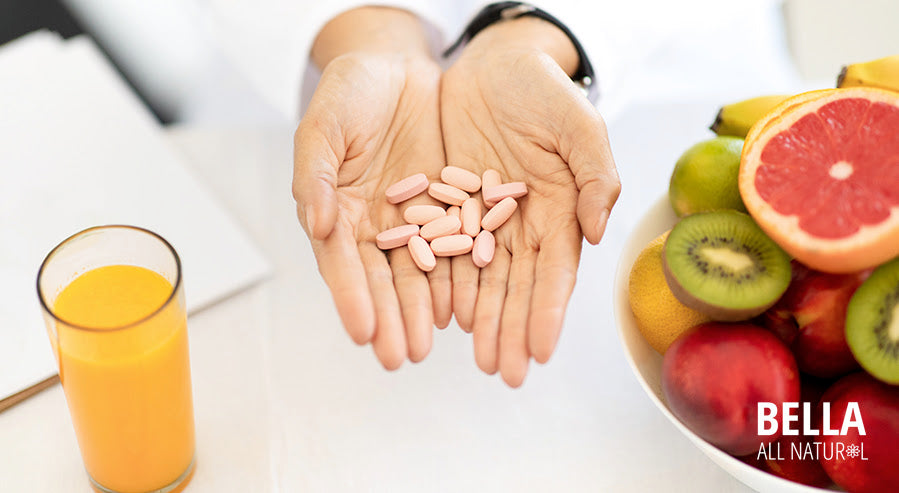
Here at Bella All Natural, we're bridging that gap. Our lineup? Think Skinny Iced Coffees to kick your metabolism into high gear and help you shed some pounds, a Detox Kit to flush out the toxins, and a Constipation Relief Kit to get your digestion on the right track. Every single thing we whip up is packed with our promise of top-quality and real results.
Thinking it's time to amp up your health game? Our products are here to help you leap over your health goals and even set new ones. Swing by Bella All Natural, and let's get you started on your process to top-tier health.





